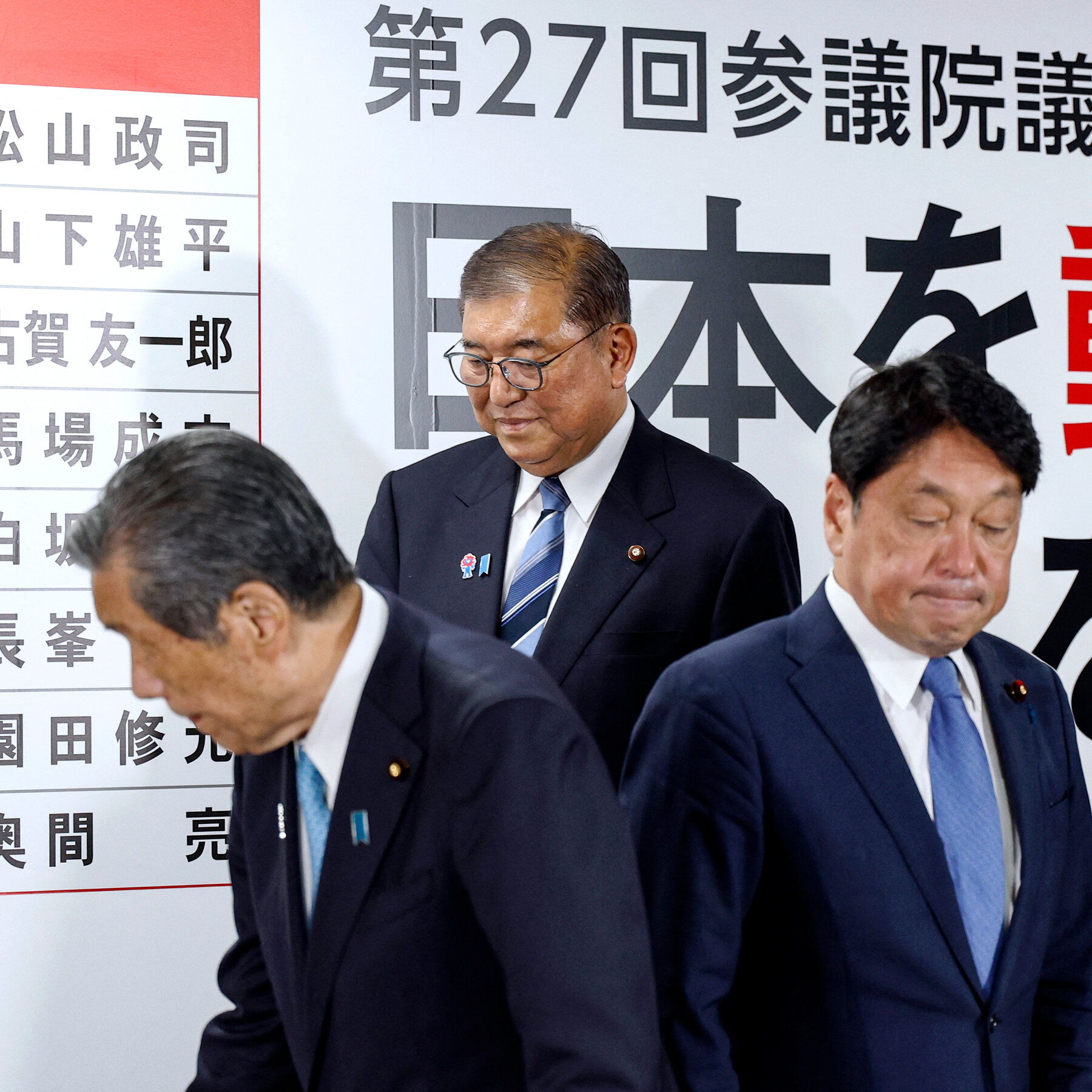
Japan’s long-governing Liberal Democratic Party suffered a defeat in parliamentary elections on Sunday that saw new right-wing populist groups make gains, heralding what could be a tectonic shift in what has been one of the world’s most stable democracies.
Prime Minister Shigeru Ishiba vowed to stay on after his Liberal Democrats and their coalition partner lost 19 of their 66 seats that were up for re-election, depriving them of control of the less powerful Upper House. But he is facing calls to step down after the setback left the Liberal Democrats, who have led Japan for all but five of the last 70 years, a minority party in both chambers of the Diet, the country’s Parliament.
Mr. Ishiba and his party failed to convince enough voters that they could resolve a host of challenges that included rising prices of staples like rice, tariff talks with the United States and the growing burden that supporting Japan’s aging population has placed on working-age people.
The election results exposed a growing generational fissure that is altering the nation’s politics. While two-thirds of the 124 seats up for grabs on Sunday went to opposition parties, the biggest gains were made not by the traditional liberal opposition, but by a gaggle of new parties that drew younger voters with stridently nationalist messages. Among them was Sanseito, a populist party led by a politician inspired by President Trump.
“With the L.D.P. in decline, Japan’s political landscape is diversifying,” said Romeo Marcantuoni, a Ph.D. candidate at Waseda University in Tokyo who has written about Sanseito. “For the first time, we’re seeing far-right populism similar to what we’ve seen in Europe.”
Before all the votes had even been counted, powerful members of the governing party were calling on Mr. Ishiba to step down, to take responsibility for what exit polls suggested would be a poor showing. Taro Aso, a former deputy prime minister, said he “couldn’t accept” Mr. Ishiba staying on as prime minister, TV Asahi reported.

Mr. Ishiba conceded in a television interview late Sunday that the Liberal Democrats had not done well, but he said he had no intention to resign, as he still had important duties to fulfill. They included reaching a trade deal with the Trump administration, which Japan has failed to do despite repeated rounds of talks.
“Whether it’s the tariff negotiations with Mr. Trump or disasters and the aging population or prices rising faster than wages, we still face many issues,” Mr. Ishiba said. “I have a responsibility to the nation to deal with these.”
But analysts say Mr. Ishiba could struggle to maintain support within his party — especially since this defeat follows one last year that robbed the Liberal Democrats of a majority in the Lower House, which chooses the prime minister. At the time, Mr. Ishiba managed to survive politically by gathering enough votes to form a minority government.
“I don’t see how the L.D.P. stays with someone who has led them to two defeats in both houses,” said Tobias Harris, founder of Japan Foresight, a firm that advises clients on Japanese politics.
If Mr. Ishiba is forced to step down, Mr. Harris and other analysts said, it could create political paralysis at a time when Japan faces an increasingly assertive China, as well as the tough tariff negotiations.
On Sunday, half of the upper chamber’s 248 seats were up for re-election. The biggest winners were two new nationalist parties, the Democratic Party for the People and Sanseito. The Democrats gained 13 seats, more than doubling their total presence in the Upper House to 22. Sanseito, a newer and more extreme party, also won 13 seats, bringing their total to 15.
Both parties won over younger voters with populist appeals to strengthen the military and cut a consumption tax that has paid for pensions and other costs to support Japan’s growing population of retirees. Sanseito, which had barely been a presence in national politics, rose seemingly overnight with promises to put “Japanese First.”

The party called for stopping an influx of immigrants who fill jobs left vacant amid Japan’s declining birthrate, but who Sanseito says threaten social stability.
Voters interviewed at polling stations in Tokyo said that while some of these populist policies were extreme, they wanted to protest against the Liberal Democrats, whom they described as out of touch. Most of their anger was about the rising price of staples, including rice.
“I used to be an L.D.P. voter, but I want change,” said Mika Inoue, a 49-year-old bank employee. “In this election, my focus was on policies that would increase the incomes of the Japanese people. Prices are rising, but incomes are not.”
Hiroshi Sugita, who owns a real estate company, said he had switched from supporting the Liberal Democrats to Sanseito.
“The L.D.P.’s policies are so inconsistent, particularly the rice price policy,” Mr. Sugita, 68, said. ”Japan is not growing anymore, the economy is rather in the downward trend and we can’t keep supporting the same party any more.”











-3.png)



